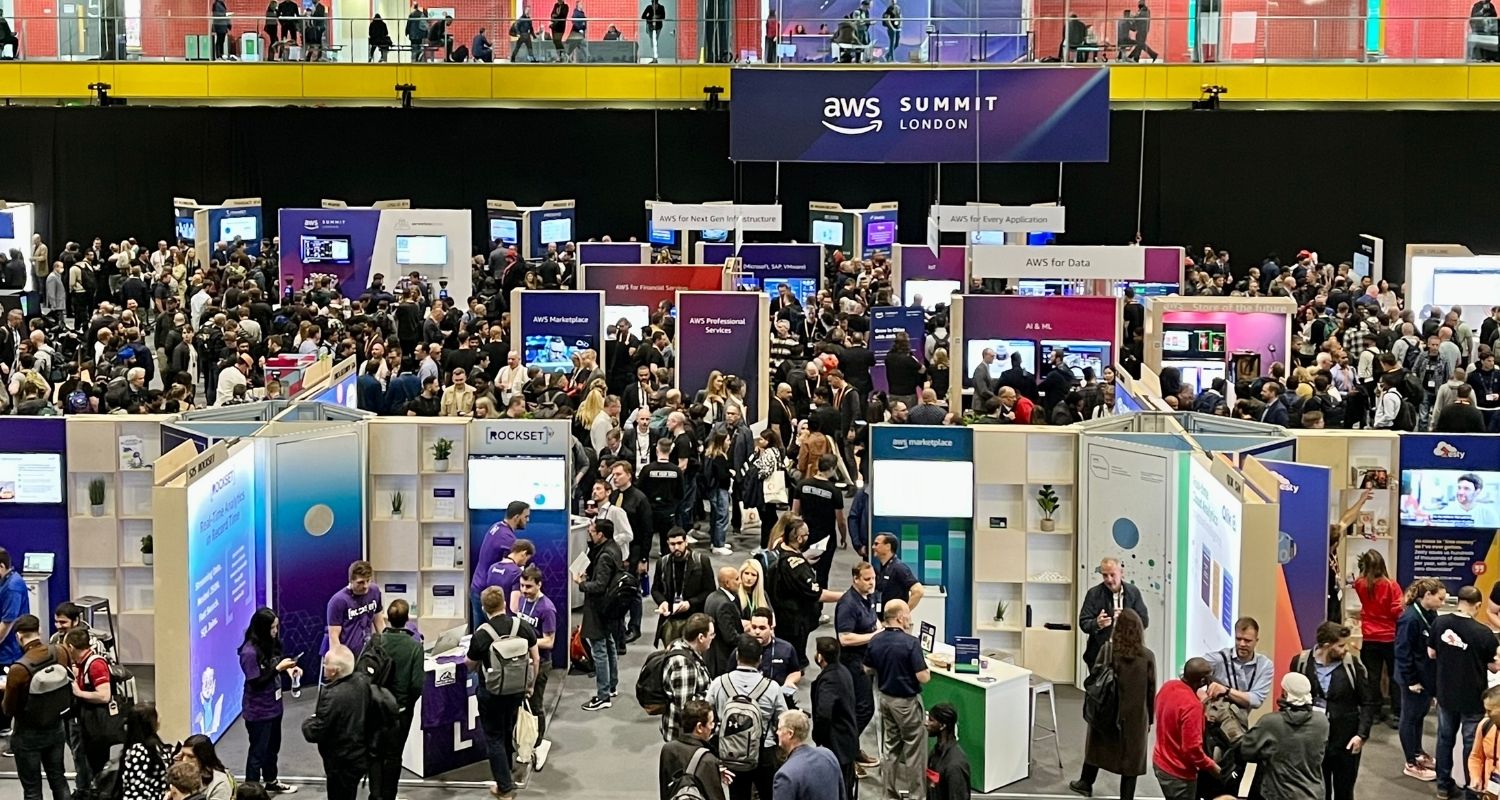
Season 4, Post 17: Data download in Docklands
Your author travelled earlier this week to the ExCel centre in London’s Docklands to attend the AWS Summit. Back for the first time in over two years, such was the unprecedented demand that entry to the event was on a first come, first serve basis. There were over 80 presentations for visitors to attend, with Werner Vogels, Amazon’s Chief Technology Officer, slated to give the keynote. Although he unfortunately had to cancel at short notice, there was still a palpable buzz across the conference and much to absorb.
Perhaps the best explanation for why so many people want to learn about data analytics, digital security, containerisation and more is simply the growing realisation that technology is “a fundamental source of competitive advantage.” This view was enunciated by Arvind Krishna, IBM’s Chief Executive, on the company’s most recent investor conference call, but has broad industry applicability. From Amazon’s perspective, various speakers from the company highlighted the breadth of the AWS (Amazon Web Services) product spread, which now extends to over 200 services. The Amazon mantra at the event seemed to be “AWS for every application” and there was heavy promotion of the company’s capabilities in spaces as diverse as industrial IOT (internet of things) and public sector government services.
One of the most interesting presentations we attended sought to explain just how Amazon had remained so innovative, not only in terms of product development but also in scaling its offerings such that broad AWS pricing has been reduced over 100 times since services began in 2006. Amazon’s mindset remains relentlessly fixated on improving customer experience, or as put to us “innovating on behalf of customers.” Small working teams with clearly defined tools as well as cultural acceptance that improvement only comes as a result of failure are distinguishing Amazon traits. These make a lot of sense to us.
What are the implications of the above? If you accept our data deluge thesis (and the fact that fewer than 25% of all workloads have been moved into cloud environments to-date), then we need more silicon and more semiconductors. Listen to Peter Wennink, CEO of ASML, the company that makes the machines that make semiconductor chips: the company is seeing “unprecedented demand across all segments”, which will endure “well into next year.” Current desperation for silicon means that some businesses, anecdotally (per ASML), are ripping chips out of domestic appliances such as washing machines and then repurposing them for other, more value-added purposes. The deluge is truly upon us.
28 April 2022
The above does not constitute investment advice and is the sole opinion of the author at the time of publication. Heptagon Capital is an investor in ASML and IBM. The author of this piece has no personal direct investment in the business. Past performance is no guide to future performance and the value of investments and income from them can fall as well as rise.
Alex Gunz, Fund Manager
Photos taken by author.
Disclaimers
The document is provided for information purposes only and does not constitute investment advice or any recommendation to buy, or sell or otherwise transact in any investments. The document is not intended to be construed as investment research. The contents of this document are based upon sources of information which Heptagon Capital LLP believes to be reliable. However, except to the extent required by applicable law or regulations, no guarantee, warranty or representation (express or implied) is given as to the accuracy or completeness of this document or its contents and, Heptagon Capital LLP, its affiliate companies and its members, officers, employees, agents and advisors do not accept any liability or responsibility in respect of the information or any views expressed herein. Opinions expressed whether in general or in both on the performance of individual investments and in a wider economic context represent the views of the contributor at the time of preparation. Where this document provides forward-looking statements which are based on relevant reports, current opinions, expectations and projections, actual results could differ materially from those anticipated in such statements. All opinions and estimates included in the document are subject to change without notice and Heptagon Capital LLP is under no obligation to update or revise information contained in the document. Furthermore, Heptagon Capital LLP disclaims any liability for any loss, damage, costs or expenses (including direct, indirect, special and consequential) howsoever arising which any person may suffer or incur as a result of viewing or utilising any information included in this document.
The document is protected by copyright. The use of any trademarks and logos displayed in the document without Heptagon Capital LLP’s prior written consent is strictly prohibited. Information in the document must not be published or redistributed without Heptagon Capital LLP’s prior written consent.
Heptagon Capital LLP, 63 Brook
Street, Mayfair, London W1K 4HS
tel +44 20 7070
1800
email london@heptagon-capital.com
Partnership No: OC307355 Registered in England and Wales Authorised & Regulated by the Financial Conduct Authority
Heptagon Capital Limited is licenced to conduct investment services by the Malta Financial Services Authority.

Receive the updates
Sign up to our monthly email newsletter for the latest fund updates, webcasts and insights.

.png)
